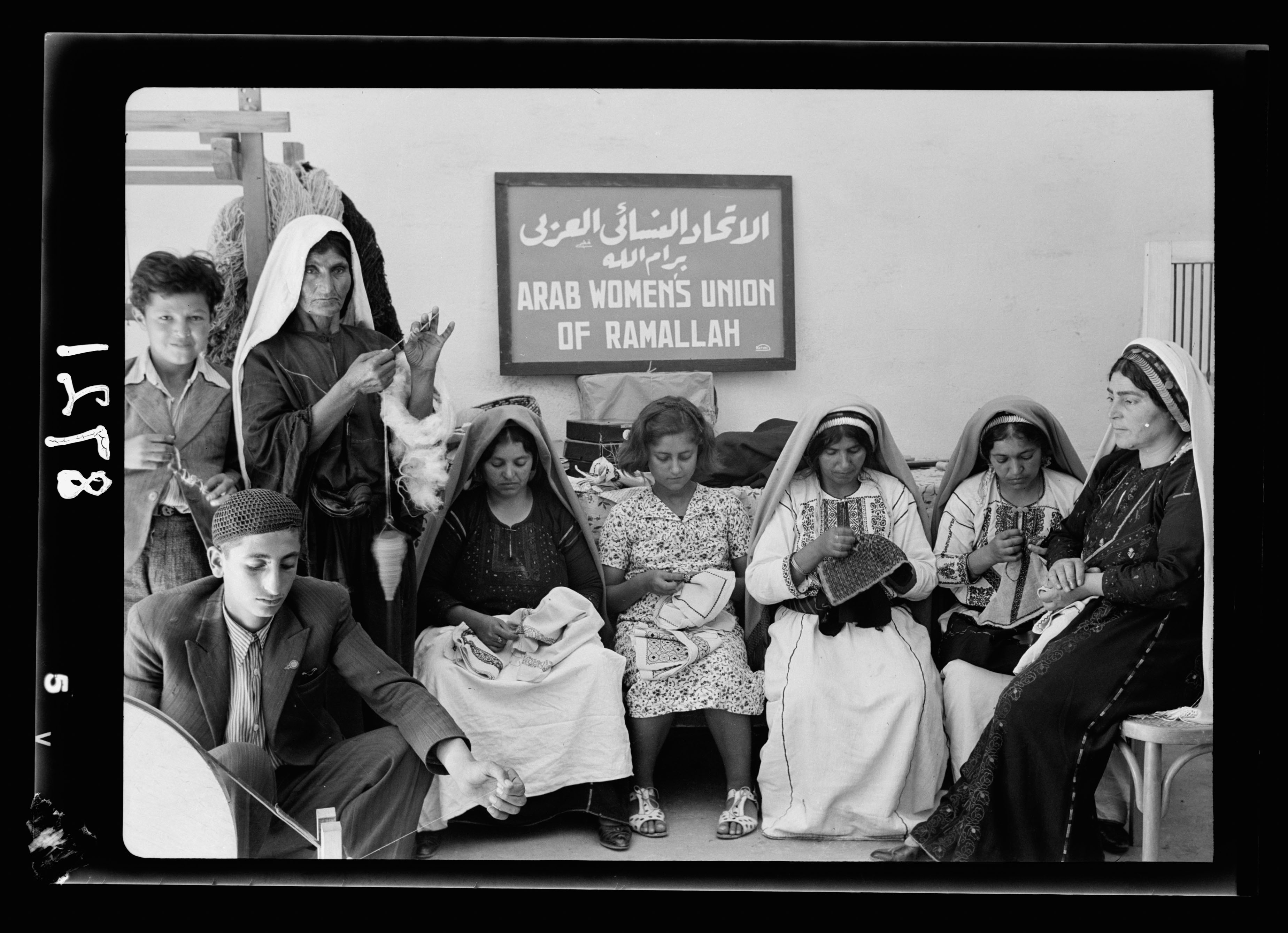Reflecting with Studio Madane on the de-facto sectarianist base of personal identity in Lebanon and the inter-group conflicts with allegedly community protection concerns.
التفكير مع ستديو مدني بشأن القاعدة الطائفية الفعلية للهوية الشخصية في لبنان والصراعات بين الجماعات مع المخاوف المزعومة لحماية الطائفة.
The focal point of debate amongst researchers and scholars was common: whether the sectarianist system of ruling stems from the ancient/ ipso-facto/inherent nature of identity and ethnicity that is deeply embedded in society and unchangeable, or it is an essential aspect of modernity, wherein sectarianism is nothing but the product of a systemic construction.
كانت النقطة المحورية للنقاش بين الباحثين والعلماء شائعة: ما إذا كان النظام الطائفي للحكم ينبع من الطبيعة القديمة/الفعلية/المتأصلة للهوية والعرقية المتأصلة بعمق في المجتمع وغير القابلة للتغيير، أو أنه جانب أساسي من الحداثة، حيث الطائفية ليست سوى نتاج بناء نظامي.
Accordingly, identity has been one of the central notions of this debate. There is a consensus on fundamental issues facing certain groups, and this consensus is influenced by the consequences of security breakdown and resentments stemming from sectarianism since the Civil War. These factors play a significant role in reinforcing the sectarian aspect of ruling and in shaping a personal identity based on the sect in Lebanon.
وبناء على ذلك، كانت الهوية أحد المفاهيم الرئيسية لهذه المناقشة. هناك إجماع على القضايا الأساسية التي تواجه مجموعات معينة، ويتأثر هذا الإجماع بنتائج الانهيار الأمني والاستياء الناجمين عن الطائفية منذ الحرب الأهلية. تلعب هذه العوامل دورًا مهمًا في تعزيز الجانب الطائفي للحكم وفي تشكيل هوية شخصية قائمة على الطائفة في لبنان

Following the Kahale incident, and the spike of the LGBTQIA+ scare amongst political leaders in Lebanon, we will delve into the latent relation between these two factors and how they simultaneously play a significant role in preserving the status quo: perpetuating the sectarian aspect of ruling, and not undermining the sectarian personal identity as a weapon for political mobilization. Preserving the status quo requires a sort of a multi-disciplinary and multi-layered intervention in different overlapping fields, otherwise we wouldn’t have witnessed the preservation of a dysfunctional system. Thus, overturning the tendency of tackling various problems individually without taking into consideration how different fields overlap is imperative.
بعد حادثة الكحالة، وارتفاع رهاب الميم العين+ بين القادة السياسيين في لبنان، سوف نتعمق في العلاقة الكامنة بين هذين العاملين وكيف يلعبان في نفس الوقت دورًا مهمًا في الحفاظ على الوضع الراهن: إدامة الجانب الطائفي للحكم، و عدم تقويض الهوية الشخصية الطائفية كسلاح للسياسة. يتطلب الحفاظ على الوضع الراهن نوعًا من التدخل المتعدد التخصصات و المستويات في مجالات متداخلة مختلفة، وإلا لما شهدنا الحفاظ على نظام عاجز و غير فعّال. ومن ثم، فمن الضروري قلب الاتجاه نحو معالجة المشكلات المختلفة بشكل فردي دون مراعاة مدى تداخل المجالات المختلفة.
We mentioned about “…the consequences of both security breakdown and the resentments of sectarianism since the civil war.” which is a pillar of the devastating effects of the sectarianist aspect of ruling and subsequently constructing the sect as a basis of personal identity.
ذكرنا عن… «نتائج الفلتان الأمني و الحقد المتربّع على عروش الطائفية, منذ زمن الحرب الأهلية». وهو ركيزة للآثار المدمرة للجانب الطائفي للحكم وبالتالي بناء الطائفة كأساس للهوية الشخصية.
Hence, how & why has sectarianism been the main pillar of identity-based conflicts and therefore led to a failed social pact?
لذلك, كيف ولماذا كانت الطائفية الركيزة الرئيسية للصراعات القائمة على الهوية وبالتالي أدت إلى عقد اجتماعي فاشل ؟
In the context of identity politics, the politicization of sect or ethnicity, and the resulting conflict, can be prevented. It’s important to note that the mere coexistence of individuals from diverse ethnic or religious backgrounds in the same society doesn’t inherently lead to conflict. History shows that many civilizations/societies have integrated people from various backgrounds without dividing along ethnic or sectarian lines. Therefore, sectarianism, as defined by Cammet, involves the politicization of religious distinctions, with a distinction made between religion as a social identity and religious groups mobilized for political purposes. Therefore, sectarianism is not an inherent or ancient identity but has been constructed and reinforced through accumulative historical influences, including the divide-and-rule strategy employed by various actors, and engineering public consent to this division. In praxis, according to Makdisi, sectarianism was actively promoted between 1831 and 1840. Besides, Maya Mikdashi considers that political sectarianism is a multidimensional construct that encompasses both a modern secular political system and a philosophy of administration, while also being entwined with colonial objectives. It emerges as a response to historical challenges, most notably sectarianism and Christian persecution in places like Mount Lebanon and the Muslim-majority territories of the Ottoman Empire. This complex phenomenon defies easy categorization, transcending religious, primordial, or tribal dimensions, as well as Ottoman or French legacies. It shapes the Lebanese state and its citizens in intricate ways, exerting influence across legal, bureaucratic, and historical frameworks.
وفي سياق سياسات الهوية، من الممكن الحدّ من تسييس الطائفة أو الإثنية، وما ينتج عن ذلك من نزاع. و من المهم أن نلاحظ أن مجرد التعايش بين الأفراد من خلفيات عرقية أو دينية متنوعة في نفس المجتمع لا يؤدي بطبيعته إلى الصراع. يبرهن التاريخ أن العديد من الحضارات/المجتمعات قد أدمجت الناس من مختلف الخلفيات دون انقسام على أسس عرقية أو طائفية. لذلك، فإن الطائفية، كما حددتها كاميت، تنطوي على تسييس التمييز الديني، مع التمييز بين الدين كهوية اجتماعية والجماعات الدينية المعبّأة/المجيّشة لأغراض سياسية. لذلك، فإن الطائفية ليست هوية متأصلة أو قديمة ولكن تم بناؤها وتعزيزها من خلال تأثيرات تاريخية تراكمية، بما في ذلك استراتيجية ‘فرّق تسد’ التي تلجأ إليها مختلف الجهات الفاعلة، بالإضافة إلى هندسة الموافقة العامّة لهذا التفريق/التقسيم. وفقًا لمقدسي، تم الترويج للطائفية بنشاط بين عامي 1831 و 1840 (1). إلى جانب ذلك، تعتبر مايا مكداشي أن الطائفية السياسية هي بناء متعدد الأبعاد يشمل كلاً من النظام السياسي العلماني الحديث وفلسفة الإدارة، بينما تتشابك أيضًا مع الأهداف الاستعمارية. يظهر كردة فعل على التحديات التاريخية، وأبرزها الطائفية واضطهاد المسيحيين في أماكن مثل جبل لبنان والأراضي ذات الأغلبية المسلمة في الإمبراطورية العثمانية. تتحدى هذه الظاهرة المعقدة التصنيف السهل، متجاوزة الأبعاد الدينية أو البدائية أو القبلية، وكذلك الموروثات العثمانية أو الفرنسية. إنه يشكل الدولة اللبنانية ومواطنيها بطرق معقدة، ويمارس نفوذًا عبر الأطر القانونية والبيروقراطية والتاريخية.
Notably, the prevailing system in question cannot sustain itself without patriarchal, male-centered structures. These two coordinating systems are implanted as pillars in the framework of personal status and its composing social institutions (marriage, family, inheritance, child custody, etc.); and therefore reinforce sect-based identities, or rather constitute the basis of these identities. The evidence behind this phenomenon is the prevalence of ‘political familism’, coined by Suad JOSEPH. She considered that “Family and families are central to understanding the state’s social and political organizations and actions” (JOSEPH, 2011, pp. 152). In the following passages, we’re going to unpack how the intersection of family, gender, and sect-based identities is employed for consolidating the latter and thus bolsters the system’s hegemony.
والجدير بالذكر أن النظام السائد المعني لا يمكنه الحفاظ على ذاته بدون هياكل أبوية ذات تمحور ذكوري. وهذان النظامان المتناسقان ركيزتان في إطار الأحوال الشخصية والمؤسسات الاجتماعية المكونة لها (الزواج، والأسرة، والإرث، وحضانة الأطفال، الخ) ؛ وبالتالي تعزز الهويات الطائفية، أو بالأحرى تشكل أساس هذه الهويات. الدليل وراء هذه الظاهرة هو انتشار «نظام العائلات السياسي»، المفهوم الذي صاغته سعاد جوزيف. واعتبرت أن «الأسرة والعائلات مركزية لفهم المنظمات والأعمال الاجتماعية والسياسية للدولة» (جوزف, 2011, ص 152). في المقاطع التالية، سنقوم بتفكيك كيفية تقاطع الهويات العائلية والجنسانية والقائمة على الطائفية لتوطيد هذه الأخيرة وبالتالي تدعيم هيمنة النظام السائد.

An unremarkable wave of homophobia has been proliferated and fueled by the ruling class. Landmarks of this wave of homophobia are highlighted by Nasrallah’s instigating speech against the LGBTQIA+ community and misleadingly labeling its movement as an Israeli-western political project (a narrative later vouched by the minister of culture as a pretext for banning the Barbie movie in Cinemas); Gebran Bassil’s analogous speech wherein he expresses his concerns about “the dismantlement of the family”; and the raid of Om’s pub (located in Mar Mkhayel) that was hosting a drag queen show, by Jnoud El Rabb (The Soldiers of God). Not to mention the proposition of a draft law by a Hezbollah-affiliated Think-tank that radically criminalizes consensual homosexual relationships alongside their advocators, or the emergence of extremist groups employed for attacking the terrain of public liberties; for instance, a horrendous thug attack was launched on the recent protest against the infringement of public liberties that occurred on the 30th of September.
انتشرت موجة غير ملحوظة من رهاب المثلية الجنسية غذتها الطبقة الحاكمة. تتجلى معالم هذه الموجة من رهاب المثلية في خطاب نصر الله التحريضي ضد مجتمع المثليين، ووصف حركته بشكل مضلل بأنها مشروع سياسي إسرائيلي غربي (وهي رواية تبنّاها وزير الثقافة لاحقًا كذريعة لمنع عرض فيلم “باربي” في دور السينما)؛ خطاب جبران باسيل المماثل الذي أعرب فيه عن مخاوفه بشأن «القضاء على العائلة» (2) ؛ والهجوم الذي نفذّه جنود الرب على الحانة “أوم” (التي تقع في مار مخايل) التي كانت تستضيف عرض «دراغ كوين». ناهيك عن اقتراح مشروع قانون من قبل مؤسسة فكرية/بحثية تابعة لحزب الله يجرم بشكل جذري العلاقات الجنسية المثلية بالتراضي إلى جانب المدافعين عنها، أو ظهور مجموعات متطرفة تستخدم لمهاجمة ميادين الحريات العامة ؛ على سبيل المثال، تم شن هجوم سفاح مروع على الاحتجاج الأخير الذي نُظم تحت عنوان انتهاك الحريات العامة الذي حدث في 30 أيلول.
We curated Nasrallah’s speech as a notable example of this moral panic. We satirically questioned the real motives behind this sudden hyper-focus on the so-called protection of “familial”, “social” and “moral” interests: “Between the criminalization of homosexuality and the criminalization of theft of bank deposits and the collapse of the Lebanese economy, who is to flogged first? Nasrallah is confused. Homosexuals or the corrupt in power? Is the nature of sexual relations the catalyst of Lebanon’s prosperity, or is it the association of politics with religion that destabilized the country?” This query actually proves that this alleged “protection of the public good” is actually counter-productive to the latter, because the panic is actually over the undermining of perpetual interests of domination.
قمنا باختيار خطاب نصر الله كمثال بارز على هذا الذعر الأخلاقي. لقد شككنا ساخرًا في الدوافع الحقيقية وراء هذا التركيز المفرط المفاجئ على ما يسمى بحماية المصالح “العائلية” و “الاجتماعية” و “الأخلاقية”: “بين تجريم المثلية الجنسية وتجريم سرقة الودائع المصرفية وانهيار الاقتصاد اللبناني، من سيجلد أولاً ؟ نصر الله مرتبك. المثليون جنسياً أم الفاسدون في السلطة ؟ هل طبيعة العلاقات الجنسية هي المحفّز لازدهار لبنان أم أن ارتباط السياسة بالدين هو الذي زعزع استقرار البلاد؟” هذا الاستفسار يثبت في الواقع أن نية «حماية المصلحة العامة» المزعومة تأتي في الواقع بنتائج عكسية للأخيرة، لأن هذا الذعر في الواقع هو على تقويض إدامة مصالح الهيمنة.
مستند 6: نطالب بالتغيير. نحن نطالب بحكومة خالية من الفساد، والأهم من ذلك أننا نطالب بالعدالة. نرجو أن يعاقبوا جميعا على أفعالهم غير الأخلاقية.
Primarily, it is inevitably tied with the concern over the “dismantlement” of the family. The latter is defined as a social institution within which the interests of multi-layered dominance are extended. The structures of this system are underpinned by infringing the what-so-called private familiar affairs through the means of camouflaged/inconspicuous “biopolitics”. Accordingly, allegedly non-conform (to the gender binary) relationships and gender expressions challenge the structure of the nuclear family, male-centrism, and traditional gender roles. Furthermore, the entanglement of political difference with religious, secular, and sexual difference is another paramount factor: sect-based identities are “bio-produced” through laws that regulate sexual difference. Regardingly, we are alluding to the concept of “sextarianism” which is coined by Maya Mikdashi: the state ties sex and sect together and does not distinguish between the two. For instance, the relations between gender discrimination and sectarianism are translated by the examples of not providing women the right to transmit the Lebanese citizenship with the pretext of preventing the enlargement of the palestinian refugees community and/or the affection of the sectarian demographic equilibrium; not enacting a unified PSL; or attempting to curb the proliferation of non-sectarian independent identities and movements, like the feminist, student, worker’s, refugee, and LGBTQIA+ movements that were amplified through the 17 October uprising. These movements unfold a range of autonomous identities that counter the scope of sect-based identities, which forms a threat to the system in question. In addition, the on-going seditious campaign inevitably reinforces “the fear of others’ amongst the dominated class and amplifies horizontal disparities that could manifest as pointless infighting and identity rifts. “Violence begets violence” is an evidently applicable phrase to the case in question.
في المقام الأول، يرتبط حتما بالقلق على «تفكّك» الأسرة. وتعرف هذه الأخيرة بأنها مؤسسة اجتماعية تمتد في إطارها مصالح الهيمنة المتعددة الطبقات. ترتكز هياكل هذا النظام على انتهاك ما يسمى بالشؤون المألوفة الخاصة من خلال وسائل «السياسات الحيوية» المموهة/غير الواضحة. وبناءً على ذلك، فإن العلاقات المزعومة غير المتوافقة (مع العلاقات الثنائية بين الجنسين) والتعبيرات الجندرية تتحدى هيكل العائلة النووية، والمركزية الذكورية، و الأدوار التقليدية للجنسين. علاوة على ذلك، فإن تشابك الاختلاف السياسي مع الاختلاف الديني والعلماني والجنسي هو عامل أساسي آخر: الهويات القائمة على الطائفة «منتجة بيولوجيًا» من خلال القوانين التي تنظم الاختلاف الجنسي.في هذا الصدد، نحن نلمح إلى مفهوم «الطائفية الجنسانية» الذي صاغته مايا مكداشي: تربط الدولة الجنس والطائفة معًا ولا تميز بين الاثنين. فعلى سبيل المثال، تترجم العلاقات بين التمييز بين الجنسين والطائفية أمثلة على عدم منح المرأة الحق في نقل الجنسية اللبنانية بحجة منع توسيع مجتمع اللاجئين الفلسطينيين و/أو التوازن الديمغرافي الطائفي ؛ وعدم سن قانون موحد للأحوال الشخصية ؛ أو محاولة الحد من انتشار الهويات والحركات المستقلة غير الطائفية، مثل الحركات النسوية والطلابية واللاجئين و العمّالين, وحركات مجتمع الميم عين+ التي تضاعفت وتيرتها خلال انتفاضة 17 تشرين. تتجلّى من هذه الحركات مجموعة من الهويات المستقلة التي تتعارض مع نطاق الهويات القائمة على الطائفة، والتي تشكل تهديدًا للنظام المعني. بالإضافة إلى ذلك، فإن الحملة المثيرة للفتنة المستمرة تعزز حتماً «الخوف من الآخرين» بين الطبقة المهيمنة وتضخم الفوارق الأفقية التي يمكن أن تظهر على أنها اقتتال داخلي عبثي لا منفعة منه, وانقسامات في الهوية. من الواضح أن عبارة «العنف يولد العنف» هي عبارة قابلة للتطبيق الدراسة المعنية.
To conclude, all the carefully curated information provides a brief understanding of the collective identity question and thus fosters the “deconstruction of the destructive identities”, which is a pivotal objective that is still under exploration in the “Collective Identity” research project. The delivered insights can assist in further understanding the system in question and the spectrum of both of conflictual identities and independent non-conflictual identities, for the sake of Studio Madane and all the target audience that couldn’t acquire all the means necessary for the knowledge of the topic in question. Moreover, the provided information can contribute to the “Collective Identity” research project whether on the ‘literature’ level, the ‘Impact Level’, and the ‘Future Prospects’ level.
في الختام، توفر جميع المعلومات المنسقة بعناية فهمًا موجزًا لمسألة الهوية الجماعية وبالتالي تعزز «تفكيك الهويات المدمرة»، وهو هدف محوري لا يزال قيد الاستكشاف في مشروع بحث «الهوية الجماعية». يمكن أن تساعد الأفكار المقدمة في زيادة فهم النظام المعني وطيف كل من الهويات المتضاربة والهويات المستقلة غير المتضاربة، لصالح ستديو مدني وسائر الجمهور المستهدف الذي لم يتمكن من الحصول على جميع وسائل المعرفة حول الموضوع المعني. علاوة على ذلك، يمكن للمعلومات الممنوحة أن تساهم في مشروع بحث «الهوية الجماعية» سواء على مستوى «المؤلفات/الأدبيات»، و «مستوى التأثير» (3)، و «آفاق المستقبل» (4).
Notes
This historical interval encompassed violent conflicts and foreign involvement, have led to the establishment of a sectarian-based political system. These events were marked by tensions between different religious groups, especially the Maronites and Druze. This sectarian identity in politics was further solidified through foreign negotiations, transitioning Lebanon from a nonsectarian society to one with a strong sectarian culture. For more, we can take both ‘The Culture of Sectarianism – Ussama Makdisi’ and ‘The History of Modern Lebanon – Fawaz Traboulsi’ as a reference for historical databases.
أدت هذه الفترة التاريخية، التي شهدت صراعات عنيفة وتدخلات أجنبية، إلى إنشاء نظام سياسي طائفي. تميزت هذه الأحداث بتوترات بين الجماعات الدينية المختلفة، وخاصة الموارنة والدروز. تم ترسيخ هذه الهوية الطائفية في السياسة من خلال المفاوضات الخارجية، وانتقال لبنان من مجتمع غير طائفي إلى مجتمع يتمتع بثقافة طائفية قوية. للمزيد، يمكننا اعتبار كل من «ثقافة الطائفية – أسامة مقدسي» و «تاريخ لبنان الحديث – فواز الطرابلسي» مرجعًا للبيانات التاريخية.
Megaphone’s brief report about Bassil’s speech concerning this matter:
يمكنك الاطّلاع على التقرير الموجز لميغافون عن خطاب باسيل بشأن هذه المسألة:
https://www.instagram.com/reel/CwNO1AeJtlH/?igshid=MWZjMTM2ODFkZg==
The aimed impact of the “Collective Identity” research project is: Partnerships for Development, Cultural Awareness, Access to Knowledge, and Social Inclusion. (The ‘Collective Identity’ project)
التأثير الذي يهدف إليه مشروع البحث «الهوية الجماعية» هو: الشراكات من أجل التنمية والوعي الثقافي والوصول إلى المعرفة والإدماج الاجتماعي. (The ‘Collective Identity’ project)
The research report will extensively add to the Lebanese literature on the mobilization of alternative-system supporters which would then be a crucial reference to understand intergroup dialogues in this era of activism. The resulting one-pager will be circulated around all CSOs and progressive collectives in the country to sign on it in the hopes of setting the foundation for a better understanding of the differences and similarities amid Lebanese CSOs and activist groups. (The ‘Collective Identity’ project)
يضاف التقرير البحثي على نطاق واسع إلى الأدبيات اللبنانية حول تعبئة مؤيدي النظام البديل والتي ستكون بعد ذلك مرجعًا حاسمًا لفهم الحوارات بين المجموعات في عصر النشاط هذا. سيتم تعميم النداء الواحد الناتج حول جميع منظمات المجتمع المدني والمجموعات التقدمية في البلاد للتوقيع عليه على أمل وضع الأساس لفهم أفضل للاختلافات وأوجه التشابه بين منظمات المجتمع المدني والمجموعات الناشطة اللبنانية. (The ‘Collective Identity’ project)
-
This author does not have any more posts.










